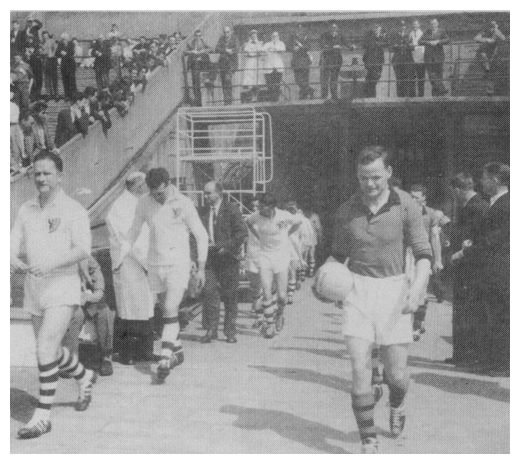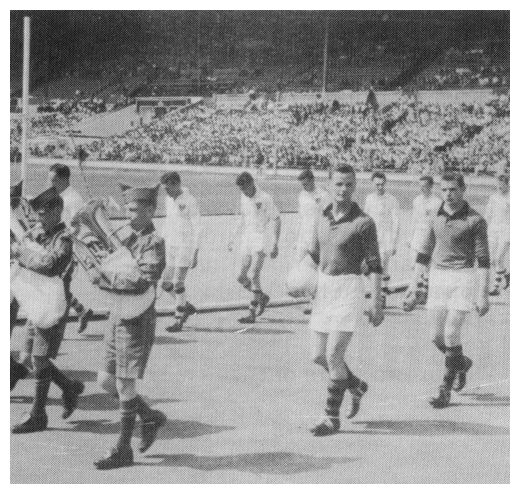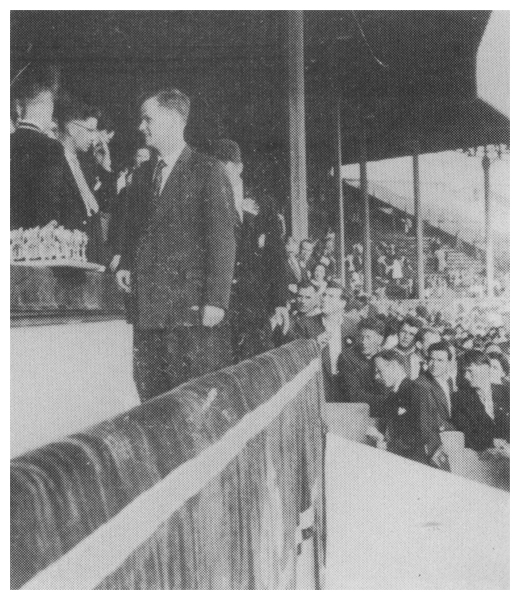 |

|
| Following in the footsteps of famous soccer stars, captain Kevin Mussen leads the Down team on to the field at Wembley for the 1959 tournament final versus Galway. |

|
| Marching around Wembley Stadium behind the Artane Boy's Band were the Down side led by Kevin Mussen. |

|
| Where captains of F.A. Cup sides receive the trophy, Kevin Mussen mounts the rostrum at Wembley Stadium in '59 after victory over Galway. |
He has little recollection of specific incidents during the match, saying that "obviously when you are concentrating so much on the task in hand everything seems to pass
so quickly."
However, there was the terrible dread that the Down fans would invade the pitch before the final whistle, thus forcing the referee to abandon the game, order a replay
and so give the Kerrymen a reprieve.
Down play at
Wembley
Stadium
The Mourne supporters did, in fact, rush the field in the final seconds, believing that the blast on the referee's whistle for a "50" was the signal for the end of
the game. But though the Canal End of the field was a sea of red and black the match was played to its conclusion.
Kevin was carried shoulder-high to the Hogan Stand where he received the coveted trophy from President De Valera, as ecstatic fans remained in occupation of the
sacred sward for hours.
All this splendour and glory was a long way from the disappointment and frustration of teams which he had captained in the 50's. During the six years that he had worn
the county colours the Down team had rarely ever got past the first round of the Ulster Championship, let alone make it to Croke Park, except as spectators!
As a boarder at St Colman's College in Newry he had learned the basic skills of the game, along with P.J. McElroy and Sean Blaney, father of the current county star,
Greg Blaney.
While playing club football with Clonduff, Kevin remembers many Sunday afternoons, stripping off behind a ditch after a game, the mud of battle being washed away in the
icy cold waters of the river Bann.
"There was nothing fancy. Today's players have marvellous facilities, - and good luck to them. There is a lot of rubbish talked about players in those days being harder
and fitter. It was just that we had no alternative."
The training schedule when he joined the county panel was basic. Members of the squad were simply notified a few days beforehand that they were playing, and where
they would be collected; many met for the first time in the dressing-room.
|
 |




